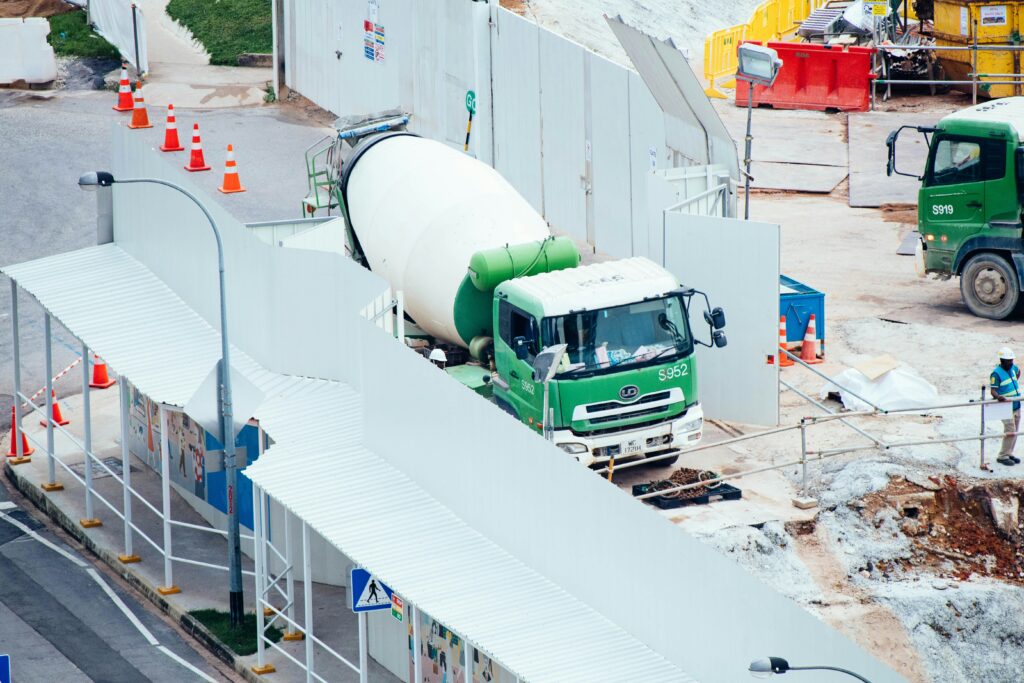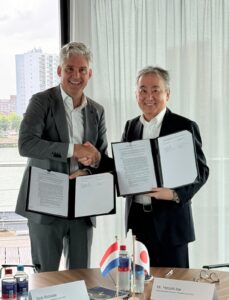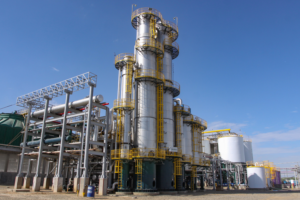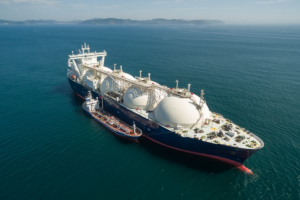EMC Cement and HES International have signed a memorandum of understanding (MoU) to build a zero-carbon cement plant in Amsterdam, Netherlands. The all-electric zero-emissions plant, of an initial capacity of 1.2 million tonnes, will cut CO2 emissions by 1 million tonnes annually — using less than 10% of the energy of a conventional Portland cement plant.
 The project will be jointly developed by EMC Cement and HES International to fully exploit industrially-proven EMC Technology, which uses a unique form of ‘mechanical activation’ — to enable abundant all-natural volcanic ash to substitute 70% of the Portland Cement used in concrete. The intended facility will also process end-of-life concrete fines and other minerals towards a sustainable circular economy. Operationally, the plant will not discharge any waste or biohazards and will meet all environmental regulations for noise and dust emissions.
The project will be jointly developed by EMC Cement and HES International to fully exploit industrially-proven EMC Technology, which uses a unique form of ‘mechanical activation’ — to enable abundant all-natural volcanic ash to substitute 70% of the Portland Cement used in concrete. The intended facility will also process end-of-life concrete fines and other minerals towards a sustainable circular economy. Operationally, the plant will not discharge any waste or biohazards and will meet all environmental regulations for noise and dust emissions.
In addition to being a general application product that complies with applicable standards both in the Netherlands and internationally, EMC Volcanics will address a wide range of concrete-durability challenges such as sulphate resistance, alkali-silica reactivity, chloride attack, etc. Moreover, EMC Technology will enable the Netherlands to achieve its decarbonization commitments for cement and concrete with a product that can meet the construction sector’s productivity requirements.
The plant is expected to become operational in Q4 2025 or Q1 2026. Located at HES’ Bulk Terminal at the Port of Amsterdam, with direct access to rail, truck, sea and canal systems, the plant will be strategically located for a broad national and wider international reach to Belgium, the UK, France, Germany and Scandinavia. To accelerate market roll-out, a smaller EMC facility will be placed on the HES site during the plant’s construction. This will expand the successful customer-testing already undertaken in the Dutch market, further preparing the construction sector for the full-scale use of EMC Volcanics once the plant comes online.
Atle Lygren, CEO and co-founder of EMC states: ‘In March 2023, Simon Stiell of the UNFCCC made it crystal clear: technology must play a vital role in meeting the need for effective Climate Action. Clearly, a technological approach changing the way we do things can have real impact if allowed to scale. In 2022, the United Nations’ IPCC stated in its pivotal Sixth Assessment Report, ‘Until a very low GHG emissions alternative binder to Portland cement is commercialised, CCS will be essential for eliminating the limestone calcination process emissions’. By replacing 70% of the Portland cement in concrete, low-energy EMC Technology will power the deep and significant Climate Action that the UNFCCC, the IPCC and the World so clearly demand. This cutting-edge project will serve as a scalable blueprint for real and worldwide Climate Action without needing subsidies, with a product that will deliver undisputable concrete durability while always at a market-competitive price. There is no need for costly CCS — because there are simply no emissions in the first place.’
Jeroen van der Neut, COO of HES comments: ‘We’re very excited about this partnership with EMC. It aligns perfectly with our strategic aspirations for handling and storing ‘greener’ products and also positively contributes to the Netherlands’ decarbonization commitments. This project solidifies HES’ dedication to ESG targets, hoping it shall serve as an exemplary model for both our clients and industry peers.’
Roon van Maanen, director Energy and & Circular Industry of Port of Amsterdam adds: ‘Establishing the EMC Cement project here aligns with the Port of Amsterdam’s ambition to transition to a carbon neutral port. We believe that this project will set a great benchmark for future sustainable initiatives at the port of Amsterdam.’









